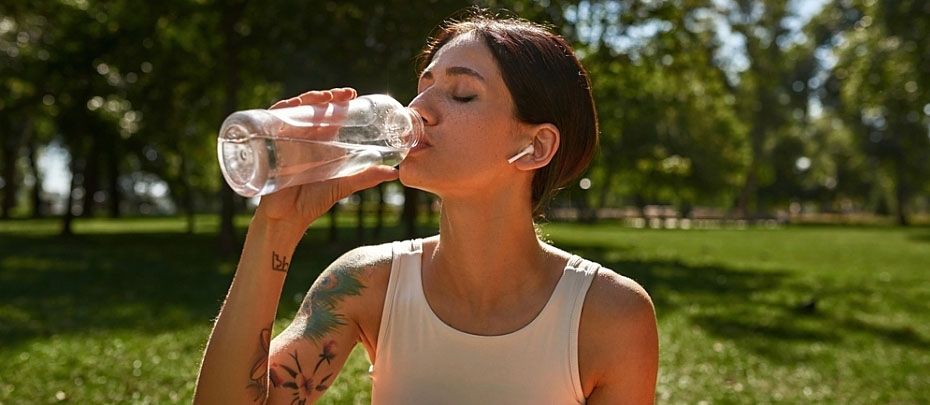Water is essential to your health. Making up about 60% of the adult body, water is important for your body in many ways, such as helping to cushion your joints, control your body temperature and even support your mood.
You’ve probably heard the advice to drink eight glasses of water a day. But does this recommendation apply to everyone, and is water the only fluid that counts? Read on to learn about factors that might affect the amount of fluid you need — as well as simple strategies to ensure you get enough.
Daily Water Intake: What You Need to Know
Your body naturally loses water as you breathe, sweat and use the bathroom throughout the day. But if you lose more water than you take in, dehydration can occur. Beyond thirst, dehydration can make you feel dizzy, mess with your mood and memory, and result in digestive issues. In serious cases, it can even lead to confusion or problems with your kidneys and heart.
The good news is, there are many hydrating options available in addition to water that can help meet your needs. Fluids like soup, milk, juice, and even coffee and tea all count toward your daily intake. Although they may not be as hydrating as water, these fluids still help keep you hydrated throughout the day.
You might be surprised to learn that food can be part of the solution, too. In fact, 20% of your daily fluid intake should come from foods. High-water-content foods, defined as foods that contain 70% or more water, offer additional support for meeting your needs. Munching on them supports your daily fluid intake while also providing vitamins and minerals. Many fruits, veggies and even some dairy products help with hydration, such as:
- 70–79% water: Bananas, avocados, cottage cheese, ricotta cheese, baked potatoes, cooked corn, shrimp
- 80–89% water: Fruit juice, yogurt, apples, grapes, oranges, carrots, cooked broccoli, pears, pineapple
- 90–99% water: Fat-free milk, cantaloupe, strawberries, watermelon, lettuce, cabbage, celery, spinach, pickles, cooked squash
Factors That Affect Hydration Needs
Daily water intake needs aren't one-size-fits-all. Eight cups may be enough for one person but leave another person under-hydrated. In general, the recommended fluid intake is between 11.5 to 15.5 cups per day for adults and between 7 to 14 cups per day for children and adolescents. However, a variety of other factors play a part in determining how much you need, including:
- Gender
- Age
- Body weight
- Living in a hot climate
- Level of physical activity
- Pregnancy or breastfeeding
- Running a fever
- Having diarrhea or vomiting




Social Share